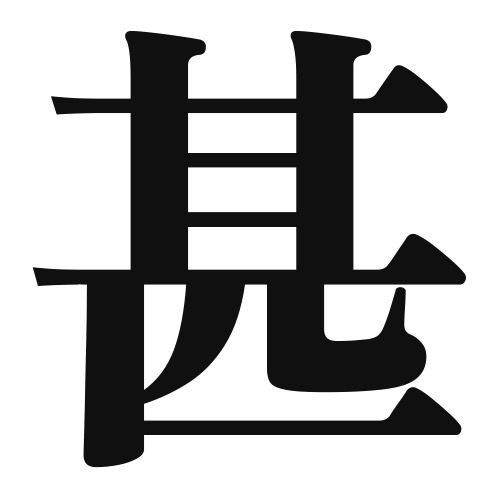1. Overview of Meaning
The kanji “甚” (pronounced “jin” or “shimu”) generally means “extremely” or “very.” It is used to express a high degree of something, often in a negative context, such as “甚だしい” (hanahadashii), which means “extreme” or “severe.”
2. Formation and Radical
Formation of the Kanji: The kanji “甚” is classified as a phonetic-ideographic character (形声文字). It combines the meaning of “extreme” with a phonetic component that suggests its pronunciation.
Radical: The radical for “甚” is “毛” (ke), which means “hair” or “fur.” This radical often relates to things that are fine or delicate, but in this context, it contributes to the overall meaning of intensity.
3. Examples of Usage
Common Words and Phrases: Some frequently used words that include “甚” are:
- 甚だしい (hanahadashii) – extreme, severe
- 甚大 (jindai) – enormous, tremendous
Example Sentences in Daily Conversation:
- この問題は甚だしい影響を及ぼしています。
(This problem has an extremely severe impact.) - 彼の行動は甚だしい誤りでした。
(His actions were an extreme mistake.)
4. Synonyms and Antonyms
Similar Kanji: A kanji with a similar meaning is “極” (kyoku), which means “extreme” or “limit.” However, “極” often conveys a sense of reaching a limit, while “甚” emphasizes the intensity of a condition.
Opposite Kanji: An antonym for “甚” is “少” (shou), which means “few” or “little.” While “甚” indicates a high degree, “少” indicates a low degree.
5. Cultural and Historical Background
Relation to Japanese Culture: The kanji “甚” is often used in literature and formal contexts to describe extreme situations or emotions, reflecting the Japanese cultural tendency to express feelings with nuance.
Proverbs and Idioms: One common expression is “甚だ迷惑” (hanahadameiwaku), which means “extremely troublesome.” This phrase illustrates how “甚” is used to convey strong negative feelings in everyday language.
